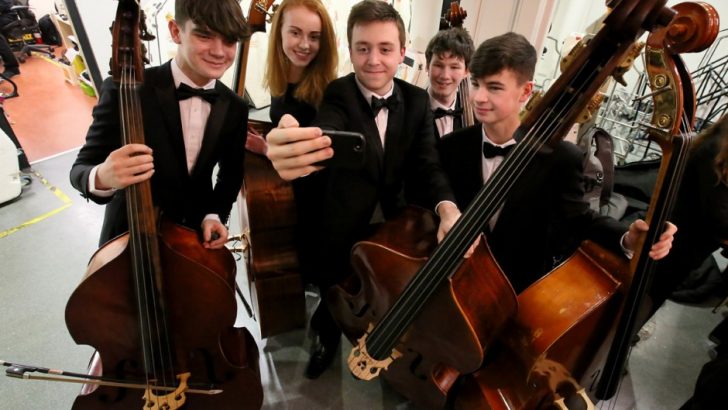No doubt the National Youth Orchestra of Ireland (NYOI) is already planning its courses and programmes for its golden jubilee next year. Founded in 1970 by the intrepid Olive Smith (often mischievously but endearingly referred to as ‘Granny’ Smith by the teenage players) and the Dublin-born, London-based violinist Hugh Maguire, who was also NYOI’s conductor for a lengthy period.
Over the years, too, the orchestra has grown not only in numbers but also in musical stature and hearing NYOI again last month I can vouch for the professional standard that has brought with it a positive richness of orchestral musicianship.
Strangely I almost avoided the NCH concert on July 17, which had been previewed in Waterford’s WIT Arena the previous evening, as I felt the programme had too many ‘bits and pieces’. Happily, I cast my prejudices aside and delightedly found the orchestral playing, under dynamic Venezuelan conductor Christian Vásquez, achieving admirable quality.
The concert’s first part was devoted to Tchaikovsky’s 2nd (Little Russian) Symphony while Part II had a collage of Hispanic colour with music from Spain, Mexico and South America.
It was good to hear Tchaikovsky again as nowadays the agreeable work only gets an occasional airing. Like its surrounding siblings – Winter Daydreams and the Polish – the Little Russian, so called because of its use of Ukrainian folk tunes, has been overshadowed by the three masterpieces of the composer’s maturity.
Written in 1872, the 2nd Symphony had a successful première in Moscow the following year. However, somewhat dissatisfied, Tchaikovsky made extensive revisions. In its new form the Symphony had its first performance in St Petersburg in 1882 and it remained one of the composer’s favourites.
Zest
NYOI’s spirited attack brought the work to life from the opening bars with playing of remarkable zest in both the strength of its strings and the sturdiness of its brass. Clarinets and timpani led the Andantino marziale second movement – the only section left untouched in Tchaikovsky’s modifications – but the woodwind really came into its own in the scampering Scherzo.
The rumbustious finale, with touches of Mussorgsky and hints of what would follow in Tchaikovsky’s later symphonies, had the young musicians rising powerfully to both the occasion and Maestro Vásquez’ vibrant interpretation.
The second half of the evening, with NYOI’s percussion having a field day, bristled with energy. It began with Manuel de Falla’s Three Cornered Hat suite. The mercurial ballet, commissioned by Sergei Diaghilev and with Leonid Massine’s choreography, was first seen in London in 1919. It remains one of Falla’s most exuberant and colourful scores. Under Señor Vásquez’ imaginative direction, NYOI caught the Andalusian atmosphere superbly and had expressive solos from principal horn and cor anglais.
Excursions to Mexico came through José Pablo Moncayo and Arturo Márquez while Alberto Ginestera took us to Argentina before Zequinha de Abreu’s catchy Tico-Tico landed us finally in Brazil. Whatever about the ‘bits and pieces’, this was a splendid concert with the intensity of the performances showing ‘also rans’ simply do not exist in the solid ranks of NYOI’s ensemble.
A recent biography, Olive Smith – A Musical Visionary, affectionately written by her daughter Gillian Smith, is currently available in bookshops nationwide.



